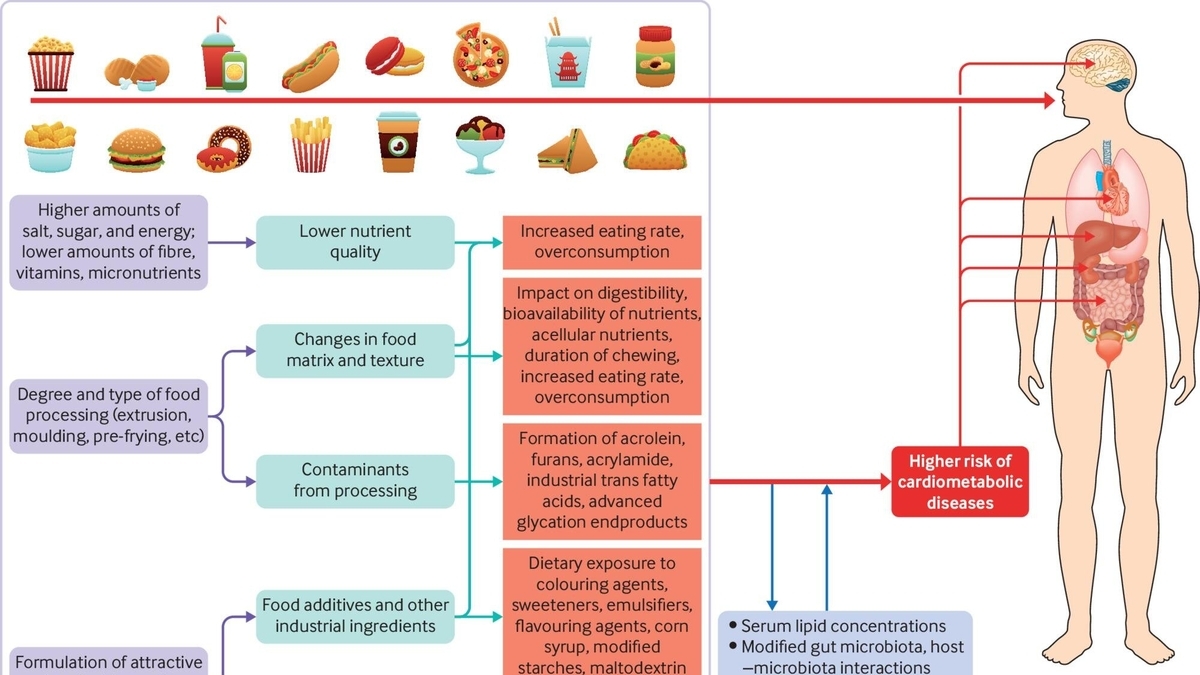
Over the past few years, the conversation around ultra-processed foods and their impact on our health has gained considerable traction. As per the NOVA food classification system, ultra-processed foods are highly modified products and often contain unhealthy fats, preservatives, and additives. They bear little resemblance to their original ingredients and have been linked to several health issues, including type 2 diabetes and obesity. A 2019 study published in JAMA Internal Medicine discovered a significant connection between these foods and an increased risk of developing diabetes.
Public Perception of Ultra-Processed Foods
A recent study titled ‘Consumer perceptions unwrapped ultra processed foods’ found that a significant majority of consumers believe ultra-processed foods (UPF) are damaging to both their health and the environment. The study, which included 9,787 adults from 17 countries across Europe, concluded that 65% of respondents consider UPF as unhealthy and likely to cause health issues in the future. Moreover, 67% believe that UPF specifically contribute to obesity and diabetes. About 60% of respondents also voiced concerns about the environmental impact of UPF, linking their production to deforestation, more greenhouse gas emissions, and greater land and water use.
Confusion Surrounding Ultra-Processed Foods
Despite the widespread belief about the health and environmental impact of UPF, the same study highlighted a significant amount of confusion and distrust among consumers about what foods are classified as ultra-processed and what ultra-processed really means. This lack of clarity leaves consumers without the necessary information to distinguish between healthy and potentially harmful foods.
Similar findings were reported in a pan-European study from the EIT Food Consumer Observatory, which revealed that many consumers are confused and uncertain about the extent to which foods are processed. This confusion is also discouraging many from choosing plant-based alternatives to meat and dairy products due to concerns over their processing levels.
Health Implications of Ultra-Processed Foods
A systematic review was conducted to evaluate the impact of ultra-processed food consumption on human health. The review found moderate certainty of evidence for an increased risk of all-cause mortality, cardiovascular disease, type 2 diabetes, and colorectal cancer with higher consumption of ultra-processed foods. Limited certainty of evidence was observed for outcomes such as inflammatory bowel diseases, obesity, metabolic syndrome, nonalcoholic fatty liver disease, mental health, and nutrient quality. Whether the processing of foods leads to increased health risks or if ultra-processed food consumption is only a measure for poor diet quality remains unclear.
Nutrient Content and Labelling of Ultra-Processed Foods
A study published in the British Journal of Nutrition investigated the nutrient content and package labelling of ultra-processed foods. The study found that ultra-processed foods tend to have an unhealthier profile on the front of pack labelling than minimally processed foods, with higher energy density, saturated fat, sugar, and salt content. Diets high in ultra-processed foods are linked with higher risk of overweight and obesity, type 2 diabetes, cardiovascular disease, and depression. Nevertheless, it is not clear whether the effects can be attributed to the ultra-processing per se or whether the effects of processing can be attributed to the nutrient profiles of the foods.
The study also found that ultra-processed foods contained more food energy per 100g than processed foods, with high fat content driving the energy content. Foods with an energy density over 200 kcal 100 g are more conducive to weight gain.
Conclusion
Given the mounting evidence, it is clear that a diet rich in ultra-processed foods can have far-reaching health implications. To ensure a healthier diet, it is crucial to understand the characteristics and ingredients of these foods and prioritize minimally processed foods such as vegetables, fruits, and whole grains. Also, the food sector needs to improve labelling, education, and guidance on ultra-processed foods to help consumers make better-informed decisions.
